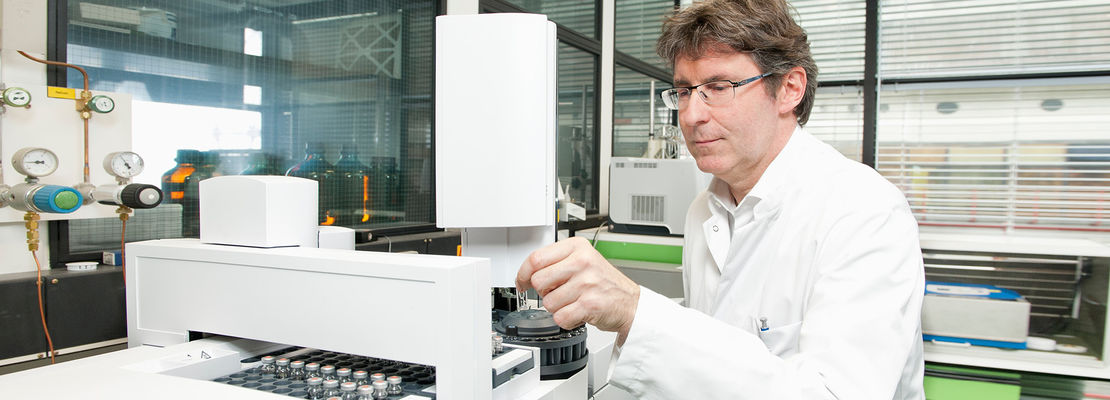Univ.-Prof. Dr. Marcel Schweiker

mschweikerukaachende
Pauwelsstraße 30, 52074 Aachen
Tel.: 0241 80-83141
Kurzbiographie
Ausbildung
- 2017 Habilitation im Fach Bauphysik und Raumklimatik, Karlsruher Institut für Technologie
- 2012-2015 Baden-Württemberg Zertifikat für Hochschuldidaktik
- 2006-2010 Promotion, Tokyo City University, Japan (PhD, Umwelt- und Informationswissenschaften)
- 1998-2006 Studium der Architektur, Universität Kassel, einschließlich einjährigem Aufenthalt an der Universidad de Europea de Madrid, Spanien (Dipl.-Ing.)
- 2000-2004 Weiterbildungsstudium Energie und Umwelt, Universität Kassel
- 2000-2004 Ergänzungsstudium Innovationsmanagement, Universität Kassel
Beruflicher Werdegang
- Ab 04/2020 Leiter des Lehr- und Forschungsgebietes Healthy Living Spaces
- 2019-2020 Vertretungsprofessor für Energie und Technik, TU Kaiserslautern
- 2010-2020 Wissenschaftlicher Mitarbeiter, Karlsruher Institut für Technologie
- 2015-2019 Forschungsgruppenleiter Heidelberger Akademie der Wissenschaften
Forschungsschwerpunkte
- Dynamische, multi-modale Expositionen in Innenräumen und deren Auswirkungen auf Nutzerzufriedenheit und –gesundheit
- Physiologische, verhaltenstechnische, und kognitiv-emotionale Adaptation an thermische Umwelteinflüsse und deren Effekt auf thermisches Empfinden und Zufriedenheit
- Alliästhesie
- Nutzerverhalten in Gebäuden und dessen Einfluss auf Nutzerzufriedenheit, Gesundheit und Gebäudeenergie
- Entwicklung innovativer Ansätze zur Gestaltung von Lebensräumen und Gebäuden
Publikationen
Zeitschriftenbeiträge
(Listung beschränkt auf eine Auswahl. Mehr auf Orcid und ResearchGate (siehe unten))
- Christoforou, R., Lange, S., & Schweiker, M. (2024). Individual differences in the definitions of health and well-being and the underlying promotional effect of the built environment. Journal of Building Engineering, 84, 108560. doi:https://doi.org/10.1016/j.jobe.2024.108560
- Vakalis, D., Hellwig, R. T., Schweiker, M., & Gauthier, S. (2023). Challenges and opportunities of Internet-of-Things in occupant-centric building operations: towards a life cycle assessment framework. Current Opinion in Environmental Sustainability, 65, 101383. doi:https://doi.org/10.1016/j.cosust.2023.101383
- Vafaei Sadr, A., Bülow, R., von Stillfried, S., Schmitz, N. E. J., Pilva, P., Hölscher, D. L., . . . Boor, P. (2023). Operational greenhouse-gas emissions of deep learning in digital pathology: a modelling study. The Lancet Digital Health. doi:https://doi.org/10.1016/S2589-7500(23)00219-4
- Pan, J., Mahdavi, A., Mino-Rodriguez, I., Martínez-Muñoz, I., Berger, C., & Schweiker, M. (2024). The untapped potential of causal inference in cross-modal research. Building and Environment, 248, 111074. doi:https://doi.org/10.1016/j.buildenv.2023.111074
- Chinazzo, G., Andersen, R. K., Azar, E., Barthelmes, V. M., Becchio, C., Belussi, L., . . . Wei, S. (2022). Quality criteria for multi-domain studies in the indoor environment: Critical review towards research guidelines and recommendations. Building and Environment, 109719. doi:https://doi.org/10.1016/j.buildenv.2022.109719
- Berger, C., Mahdavi, A., Azar, E., Bandurski, K., Bourikas, L., Harputlugil, T., . . . Schweiker, M. (2022). Reflections on the Evidentiary Basis of Indoor Air Quality Standards. Energies, 15(20). doi:10.3390/en15207727
- Cureau, R. J., Pigliautile, I., Pisello, A. L., Bavaresco, M., Berger, C., Chinazzo, G., . . . Wang, A. (2022). Bridging the gap from test rooms to field-tests for human indoor comfort studies: A critical review of the sustainability potential of living laboratories. Energy Research & Social Science, 92, 102778. doi:https://doi.org/10.1016/j.erss.2022.102778
- Rawal, R., Shukla, Y., Vardhan, V., Asrani, S., Schweiker, M., Dear, R., . . . Somani, G. (2022). Adaptive thermal comfort model based on field studies in five climate zones across India. Building and Environment, 109187. doi:10.1016/j.buildenv.2022.109187
- Vellei, M., Azar, E., Bandurski, K., Berger, C., Carlucci, S., Dong, B., . . . Schweiker, M. (2022). Documenting occupant models for building performance simulation: a state-of-the-art. Journal of Building Performance Simulation, Volume 15, 2022. doi:10.1080/19401493.2022.2061050
- Yao, R., Zhang, S., Du, C., Schweiker, M., Hodder, S., Olesen, B. W., . . . Li, B. (2022). Evolution and performance analysis of adaptive thermal comfort models – A comprehensive literature review. Building and Environment, 217, 109020. doi:https://doi.org/10.1016/j.buildenv.2022.109020
- Rissetto, R., Rambow, R., & Schweiker, M. (2022). Assessing comfort in the workplace: A unified theory of behavioral and thermal expectations. Building and Environment, 216, 109015. doi:https://doi.org/10.1016/j.buildenv.2022.109015
- Schweiker, M. (2022). Combining adaptive and heat balance models for thermal sensation prediction: A new approach towards a theory and data-driven adaptive thermal heat balance model. Indoor Air, 32(3), e13018. doi:https://doi.org/10.1111/ina.13018
- Lechner, S., Moosmann, C., Wagner, A., & Schweiker, M. (2021). Does thermal control improve visual satisfaction? Interactions between occupants’ self-perceived control, visual, thermal, and overall satisfaction. Indoor Air, n/a(n/a). doi:https://doi.org/10.1111/ina.12851
- Haggar, P., Ampatzi, E., Potoglou, D., & Schweiker, M. (2022). Information sharing preferences within buildings: Benefits of cognitive interviewing for enhancing a discrete choice experiment. Energy and Buildings, 258, 111786. doi:https://doi.org/10.1016/j.enbuild.2021.111786
- Chen, C.-f., Dietz, T., Fefferman, N. H., Greig, J., Cetin, K., Robinson, C., . . . Fu, R. (2022). Extreme events, energy security and equality through micro- and macro-levels: Concepts, challenges and methods. Energy Research & Social Science, 85, 102401. doi:https://doi.org/10.1016/j.erss.2021.102401
- Alamirah, H., Schweiker, M., & Azar, E. (2022). Immersive virtual environments for occupant comfort and adaptive behavior research – A comprehensive review of tools and applications. Building and Environment, 207, 108396. doi:https://doi.org/10.1016/j.buildenv.2021.108396
- Schweiker, M., Endres, E., Gosslar, J., Hack, N., Hildebrand, L., Creutz, M., . . . Roswag-Klinge, E. (2021). Ten questions concerning the potential of digital production and new technologies for contemporary earthen constructions. Building and Environment, 206, 108240. doi:https://doi.org/10.1016/j.buildenv.2021.108240
- Becker, S., Schakib-Ekbatan, K., Wroblewski, D., & Schweiker, M. (2021). Perception of repeated pain relief with controllable and uncontrollable pain. European Journal of Pain,. doi:https://doi.org/10.1002/ejp.1775
- Mahdavi, A., Berger, C., Amin, H., Ampatzi, E., Andersen, R. K., Azar, E., . . . , Schweiker, M., . . . , Verbruggen, S. (2021). The Role of Occupants in Buildings’ Energy Performance Gap: Myth or Reality? SUSTAINABILITY, 13(6). doi:10.3390/su13063146
- Pisello, A. L., Pigliautile, I., Andargie, M., Berger, C., Bluyssen, P. M., Carlucci, S., . . . , Schweiker, M., . . . , Wei, S. (2021). Test rooms to study human comfort in buildings: A review of controlled experiments and facilities. Renewable and Sustainable Energy Reviews, 149, 111359. doi:https://doi.org/10.1016/j.rser.2021.111359
- Rissetto, R., Schweiker, M., & Wagner, A. (2021). Personalized ceiling fans: Effects of air motion, air direction and personal control on thermal comfort. Energy and Buildings, 235, 110721. doi:https://doi.org/10.1016/j.enbuild.2021.110721
- Siodlaczek, M., Gaedtke, M., Simonis, S., Schweiker, M., Homma, N., & Krause, M. J. (2021). Numerical evaluation of thermal comfort using a large eddy lattice Boltzmann method. Building and Environment, 192, 107618. doi:https://doi.org/10.1016/j.buildenv.2021.107618
- Mueller, D., Rewitz, K., Derwein, D., Burgholz, T., Schweiker, M., Bardey, J., & Tappler, P. (2021). Abschätzung des Infektionsrisikos durch aerosolgebundene Viren in belüfteten Räumen (2. überarbeitete und korrigierte Auflage).
- Schweiker, M., Abdul-Zahra, A., André, M., Al-Atrash, F., Al-Khatri, H., Alprianti, R. R., . . . Zomorodian, Z. S. (2020). Evaluating assumptions of scales for subjective assessment of thermal environments – do laypersons perceive them the way, we researchers believe? Energy and Buildings. doi:https://doi.org/10.1016/j.enbuild.2020.109761
- Schweiker, M., Fuchs, X., Schakib-Ekbatan, K., Becker, S., Fuchs, X., & Becker, S. (2020). A seasonal approach to Alliesthesia. Is there a conflict with thermal adaptation? Energy and Buildings, 212, 1-13. doi:https://doi.org/10.1016/j.enbuild.2019.109745
- Schweiker, M., Rissetto, R., & Wagner, A. (2020). Thermal expectation: Influencing factors and its effect on thermal perception. Energy and Buildings, 210, 109729-109729. doi:https://doi.org/10.1016/j.enbuild.2019.109729
- Schweiker, M., Abdul-Zahra, A., André, M., Al-Atrash, F., Al-Khatri, H., Alprianti, R. R. R. R., . . . Zomorodian, Z. S. Z. S. (2019). The Scales Project, a cross-national dataset on the interpretation of thermal perception scales. Scientific Data, 6(1), 289-289. doi:10.1038/s41597-019-0272-6
- Schweiker, M., Huebner, G. M., Kingma, B. R. M., Kramer, R., & Pallubinsky, H. (2018). Drivers of diversity in human thermal perception – A review for holistic comfort models. Temperature, 5(4), 308-342. doi:10.1080/23328940.2018.1534490
- Schweiker, M., Fuchs, X., Becker, S., Shukuya, M., Dovjak, M., Hawighorst, M., & Kolarik, J. (2017). Challenging the assumptions for thermal sensation scales. Building Research and Information, 45(5), 572-589. doi:10.1080/09613218.2016.1183185
- Schweiker, M., & Wagner, A. (2016). The effect of occupancy on perceived control, neutral temperature, and behavioral patterns. Energy and Buildings, 117, 246-259. doi:https://doi.org/10.1016/j.enbuild.2015.10.051
Marcel Schweiker auf Orcid, ResearchGate, Google Scholar oder LinkedIn
Bücher
- Møller, J.K., Schweiker, M., Andersen, R.K., Gunay, B., Yilmaz, S., Barthelmes, V.M., & Madsen, H. (2024). Statistical Modelling of Occupant Behaviour (1st ed.). Chapman and Hall/CRC.
- Schweiker, M., Hass, J., Novokhatko, A., & Halbleib, R. (Eds.). (2023). Measurement and Understanding in Science and Humanities: Interdisciplinary Approaches. Springer Nature.
- Schweiker, M., Hass, J., Novokhatko, A., & Halbleib, R. (2017). Messen und Verstehen in der Wissenschaft: Interdisziplinäre Ansätze: Springer-Verlag.
- Wagner, A., Höfker, G., Lützkendorf, T., Moosmann, C., Schakib-Ekbatan, K., & Schweiker, M. (2015). Nutzerzufriedenheit in Bürogebäuden, Empfehlungen für Planung und Betrieb: Stuttgart: Fraunhofer IRB Verlag.
Buchbeiträge
- Schweiker, M., Berger, C., Day, J., & Mahdavi, A. (2023). Fundamentals of IEQ and Occupant Needs. In Occupant-Centric Simulation-Aided Building Design (pp. 10-33). Routledge.
- O’Brien, W., Calì, D., De Simone, M., Tabadkani, A., Azar, E., Rajus, V. S., ... & Rysanek, A. (2023). 6 Introduction to Occupant Modeling. Occupant-Centric Simulation-Aided Building Design, 104.
- Runa, T. H., Despoina, T., Marcel, S., Joon-Ho, C., Lee, M. C. J., Rodrigo, M., . . . Farah, A.-A. (2022). Design of adaptive opportunities for people in buildings. In Routledge Handbook of Resilient Thermal Comfort: Routledge.
- Marcel, S. (2022). Rethinking resilient thermal comfort within the context of human-building resilience. In Routledge Handbook of Resilient Thermal Comfort: Routledge.
- Schweiker, M., Carlucci, S., Andersen, R.K., Dong, B. and O’Brien, W., 2018. Occupancy and Occupants’ Actions. In: A. Wagner, W. O’Brien and B. Dong, eds., Exploring Occupant Behavior in Buildings. Springer, pp.7–38.
- Wagner, A. et al., 2018. Laboratory Approaches to Studying Occupants. In: A. Wagner, W. O’Brien and B. Dong, eds., Exploring Occupant Behavior in Buildings. Springer, pp.169–212.
- Chen, C., Schweiker, M. and Day, J.K., 2018. Ethics and Privacy. In: A. Wagner, W. O’Brien and B. Dong, eds., Exploring Occupant Behavior in Buildings. Springer, pp.287–306.
- Becker, S. and Schweiker, M., 2017. Reflexionen und Perspektiven zu den Forschungsfeldern thermischer Komfort am Arbeitsplatz und Schmerz. In: M. Schweiker et al., eds., Messen und Verstehen in der Wissenschaft. Springer, pp.187–206.
- Schweiker, M., 2017. Kommunikationskulturen. In: M. Schweiker et al., eds., Messen und Verstehen in der Wissenschaft. Springer, pp.257–276.
- Schweiker, M., 2015. Thermische Behaglichkeit. In: A. Wagner et al., eds., Nutzerzufriedenheit in Bürogebäuden: Empfehlungen für Planung und Betrieb. Stuttgart: Fraunhofer IRB Verlag, p.49.
- Schweiker, M., 2015. Aktuelle Tendenzen in der Forschung zum sommerlichen thermischen Komfort. In: A. Wagner et al., eds., Nutzerzufriedenheit in Bürogebäuden: Empfehlungen für Planung und Betrieb. Stuttgart: Fraunhofer IRB Verlag, pp.57–58.
- Moosmann, C., Schweiker, M. and Kalz, D., 2015. Erfahrungen aus Felduntersuchungen zum adaptiven Komfort. In: A. Wagner et al., eds., Arbeitsplatz Bürogebäude - Nutzerzufriedenheit beschreiben, bewerten, beeinflussen. FIZ Karlsruhe, pp.64–69.
- Schweiker, M., 2015. Planungs- und Handlungsempfehlungen zum thermischen Komfort. In: A. Wagner et al., eds., Nutzerzufriedenheit in Bürogebäuden: Empfehlungen für Planung und Betrieb. Stuttgart: Fraunhofer IRB Verlag, pp.75–77.
- Schweiker, M. and Brensing, J., 2015. Einfluss der Regelmöglichkeiten auf die Nutzerzufriedenheit. In: A. Wagner et al., eds., Nutzerzufriedenheit in Bürogebäuden: Empfehlungen für Planung und Betrieb. Stuttgart: Fraunhofer IRB Verlag, pp.133–134.
- Schweiker, M. and Brensing, J., 2015. Ausreichend viele und effektive Regelmöglichkeiten. In: A. Wagner et al., eds., Nutzerzufriedenheit in Bürogebäuden: Empfehlungen für Planung und Betrieb. Stuttgart: Fraunhofer IRB Verlag, pp.134–135.
- Schweiker, M. and Brensing, J., 2015. Regelmöglichkeiten verstehen. In: A. Wagner et al., eds., Nutzerzufriedenheit in Bürogebäuden: Empfehlungen für Planung und Betrieb. Stuttgart: Fraunhofer IRB Verlag, pp.135–136.
- Andersen, R.K., Fabi, V. and Schweiker, M., 2015. Nutzerverhalten, Komfort und Energie - Erfahrungen und Planungsempfehlungen. In: A. Wagner et al., eds., Arbeitsplatz Bürogebäude - Nutzerzufriedenheit beschreiben, bewerten, beeinflussen. Fraunhofer IRB Verlag, pp.137–140.
Sonstiges
Mitgliedschaften
- Akademiekolleg der Heidelberger Akademie der Wissenschaften
- Alumni des Eliteprogramm für Postdoktoranden der Baden-Württemberg Stiftung
- VDI (Verein Deutscher Ingenieure)
- ISIAQ (International Society of Indoor Air Quality and Climate)
- IBPSA (International Building Performance Simulation Association) und IBPSA Germany
Ad-hoc Reviewertätigkeiten
- Gutachter für Forschungsanträge (H2020: Marie Skłodowska-Curie Individual Fellowships (European commission), Swiss National Science Foundation (SNF), National Sciences and Engineering Council of Canada (NSERC))
- Peer-reviewed Fachmagazine (Nature Scientific Report, Indoor Air, Energy and Buildings, Building and Environment, Sustainable Cities and Society, …)
- Konferenzen (International Building Physics Conference, IBPSA Conference, Windsor conference, …)
Ausschüsse
- Mitglied DIN-Normenausschuss „Ergonomie“ (NAErg)
- Mitglied ISO Committee „Ergonomics of the physical environment“ (ISO/TC 159/SC 5/)



